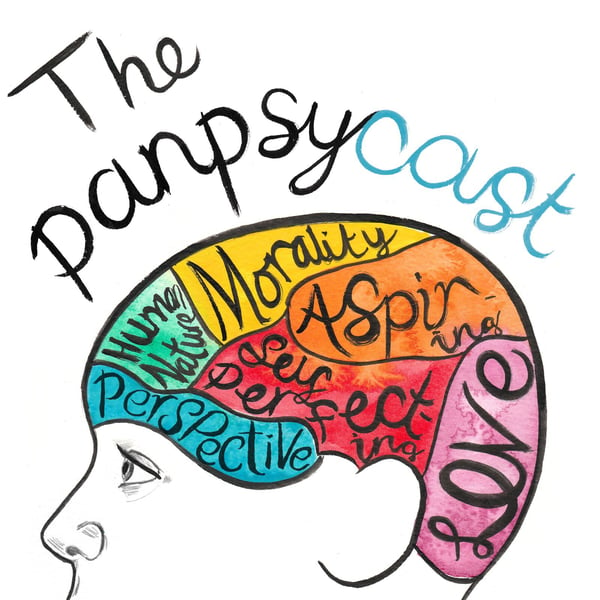Episode 31, Ludwig Wittgenstein with Prof. Richard Gaskin (Part I - Tractatus Logico-Philosophicus)
The Panpsycast Philosophy Podcast
Jack Symes | Andrew Horton, Oliver Marley, and Rose de Castellane
4.8 • 604 Ratings
🗓️ 7 January 2018
⏱️ 52 minutes
🧾️ Download transcript
Summary
This episode is proudly supported by the New College of the Humanities. To find out more about the college and their philosophy programmes, please visit www.nchlondon.ac.uk/panpsycast. Everything you could need is on www.thepanpsycast.com! Please tweet us your thoughts at www.twitter.com/thepanpsycast. Ludwig Wittgenstein was an Austrian-British philosopher whose work focused on the philosophy of mathematics, logic, the philosophy of mind, and most notably, the philosophy of language.
Wittgenstein’s influence on the world of philosophy has been phenomenal. The study of philosophy was immensely important to Wittgenstein, not only as an academic discipline but as a form of therapy. In Ludwig’s own words, he describes philosophy as, "the only work that gives me real satisfaction". Wittgenstein’s work can be divided into an early period, exemplified by the Tractatus (our focus for Part I), and a later period, articulated in the Philosophical Investigations (which is our focus for Part II). Early Wittgenstein was concerned with the logical relationship between propositions and the world. He thought that by providing an account of this relationship, he had solved every philosophical problem. The later Wittgenstein rejected many of the assumptions of the Tractatus, arguing that the meaning of words is best understood as their use within a given language-game. Wittgenstein’s life and work are astonishing. His mentor, Bertrand Russell, described him as "the most perfect example I have ever known of genius as traditionally conceived; passionate, profound, intense, and dominating". Part I. The Tractatus Logico-Philosophicus (08:00 in Part I), Part II. The Philosophical Investigations (start of Part II), Part III. What can Nietzsche teach us? (45:45 in Part II).
Transcript
Click on a timestamp to play from that location
| 0:00.0 | So we literally have to be here, but as close as possible. |
| 0:03.5 | It close as possible, yeah, just around that. |
| 0:05.6 | We've got to do this for two hours, right? |
| 0:16.7 | Ludwig Wittgenstein was an Austrian-British philosopher |
| 0:20.1 | whose work focused on the philosophy |
| 0:21.9 | of mathematics, logic, the philosophy of mind, and most notably the philosophy of language. |
| 0:28.0 | Wittgenstein's influence on the world of philosophy has been phenomenal. |
| 0:32.3 | The study of philosophy was immensely important to Wittgenstein, not only as an academic |
| 0:36.7 | discipline but as a form |
| 0:37.8 | of therapy. In Lugwig's own words, he describes philosophy as the only work that gives |
| 0:42.6 | me real satisfaction. Vittgenstein's work can be divided into an early period exemplified in the |
| 0:48.3 | tractatus, our focus for part one, and a later period articulated in the philosophical investigations, which is our focus |
| 0:55.8 | for part two. Early Wittgenstein was concerned with the logical relationship between propositions |
| 1:01.4 | and the world. The later Wittgenstein rejected many of the assumptions of the tractators, |
| 1:06.4 | arguing that the meaning of words is best understood as their use within a given language game. |
| 1:12.0 | Vittgenstein's life and work is astonishing. |
| 1:14.4 | His mentor, Bertrand Russell, described him as the most perfect example I have ever known |
| 1:19.4 | of genius as traditionally conceived, passionate, profound, intense and dominating. |
| 1:25.4 | Discussing the life and work of Wittgenstein today with us is Professor of Philosophy at |
| 1:29.6 | the University of Liverpool, Richard Gaskin. |
| 1:32.6 | Professor Richard Gaskin was educated at the universities of Oxford, Cambridge and London. |
| 1:37.2 | From 1991 to 1997, he held a lectureship in philosophy at the University of Sussex and then |
... |
Please login to see the full transcript.
Disclaimer: The podcast and artwork embedded on this page are from Jack Symes | Andrew Horton, Oliver Marley, and Rose de Castellane, and are the property of its owner and not affiliated with or endorsed by Tapesearch.
Generated transcripts are the property of Jack Symes | Andrew Horton, Oliver Marley, and Rose de Castellane and are distributed freely under the Fair Use doctrine. Transcripts generated by Tapesearch are not guaranteed to be accurate.
Copyright © Tapesearch 2025.

